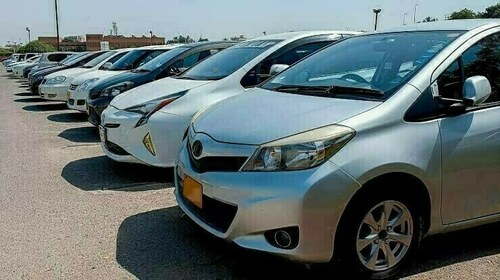Pak Suzuki Anticipates Market Growth and Reaffirms Commitment to Pakistan
Pak Suzuki Motor Company Limited (PSMCL) anticipates significant growth in the automobile Completely Knocked Down (CKD) market, projecting an increase of over 20% this year. CEO & Managing Director Hiroshi Kawamura stated that Pak Suzuki is well-positioned to maintain its 45% market share, underscoring the company’s dedication to Pakistan’s automotive sector.
Export Performance and Future Initiatives
Kawamura highlighted past export achievements, including shipments of over 3,000 Ravi pickups to Bangladesh and Nepal, along with spare parts and accessories to regions including Europe, Japan, Vietnam, and Indonesia.
During a recent media briefing, he reiterated the company’s commitment to backing governmental export initiatives. “We are actively investigating potential new markets and performing product testing across numerous countries,” he noted.
Suzuki’s Legacy in Pakistan
Reflecting on Suzuki’s history and presence in Pakistan spanning more than four decades, Kawamura remarked, “Pak Suzuki has consistently strived to offer accessible mobility to improve the lives of Pakistanis. Pakistan is particularly important to Suzuki, as it was the first nation outside Japan where Suzuki started vehicle production in 1975, prior to Pak Suzuki’s official establishment in 1983. Suzuki has gained the confidence of over 2.5 million customers over the years, becoming a well-known brand associated with dependability and value.”
Nationwide Network and Localization Efforts
Kawamura emphasized Pak Suzuki’s development of the largest nationwide network, comprising 175 dealerships across more than 100 cities, which is three times larger than any other Original Equipment Manufacturer (OEM) in the country.
The CEO of PSMCL also noted Pak Suzuki’s leading role in establishing a local vendor base in Pakistan. He mentioned that over the past four decades, Pak Suzuki has supported over 100 local parts suppliers, offering technical support and joint ventures to facilitate the localization of advanced parts.
These local vendors now supply auto parts to all OEMs. “Pak Suzuki procures approximately PKR 50 billion worth of local parts annually,” he stated. Highlighting Pak Suzuki’s dedication to the local market, he added, “We have invested significantly in the development and localization of our new model, Suzuki Every. We are committed to promoting economic growth and creating jobs in Pakistan.”
Concerns Regarding Policy Proposals
Addressing recent policy proposals, Kawamura expressed concerns regarding the potential liberalization of used vehicle imports and raising the permissible age limit to five years.
“The domestic auto industry is currently operating at only 40% capacity, placing the entire supply chain under considerable strain. Used vehicle imports already account for 25% of the market. Any further relaxation of import policies could negatively affect the local industry, potentially resulting in widespread job losses and the collapse of the entire value chain,” he cautioned. “No other country with a well-established domestic auto industry permits such a large influx of used vehicles.”
National Tariff Policy and Industry Development
He also addressed the National Tariff Policy 2025–2030, which suggests broad tariff reductions to stimulate export-driven growth. While welcoming reduced raw material tariffs to boost local competitiveness, he cautioned that lowering import duties on finished goods, such as reducing Completely Built-Up (CBU) vehicle duties to 15%, would severely threaten local manufacturing viability. “With an approximate annual production of 300,000 units, Pakistan’s auto sector remains in a developmental phase and does not yet benefit from economies of scale. Premature tariff reductions and the liberalization of used vehicles would reverse decades of industry progress,” he added. “The collapse of Australia’s local auto industry due to similar liberalization is a fate we must avoid in Pakistan.”
Sustainable Development Strategy
Kawamura stated that Pak Suzuki’s strategy for sustainable development focuses on utilizing locally available resources. Pak Suzuki’s Biogas Project aims to convert bio waste into clean, renewable fuel. “Using biogas as automotive fuel could be a transformative solution for Pakistan,” Kawamura commented, adding, “It has the potential to enhance the trade balance, protect the environment, and generate employment in Pakistan’s rural regions.”



Comments (0)
No comments yet. Be the first to comment!
Leave a Comment